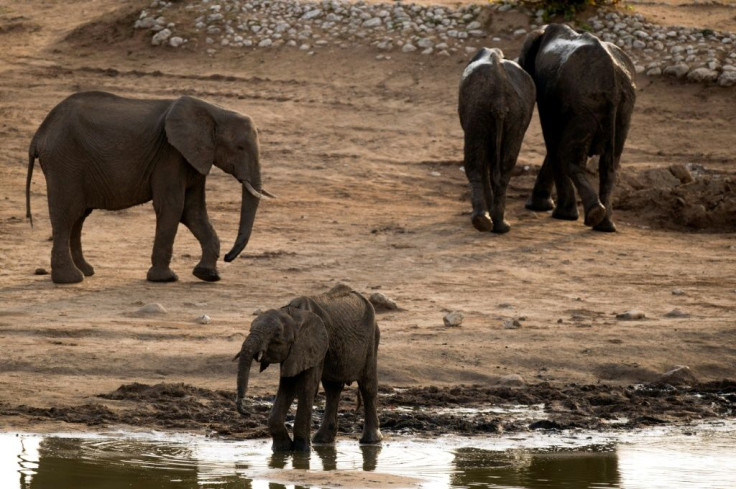Animal Activists Raise Concerns About Trade And Trauma Faced By Confined Baby Elephants

For Zimbabwean wildlife officials, capturing and trading elephants to other countries in a normal phenomenon. However, this practice has been criticized by animal rights activists recently, citing concerns about the mental state and the deep trauma suffered by these elephants when kept in confinement.
Zimbabwean officials legally captured baby elephants that were old enough to survive without their mother but small enough to fit into crates to be shipped to China from Hwange National Park. These elephants, which aged between 2 to 6 years were then held in cages till they were ready to be shipped.
In October, 30 such elephants were shipped to China after they were held in captivity for almost a year. Animal activists who came to know about the news criticized the officials from the Zimbabwe National Parks and Wildlife Management Authority (Zimparks) for being insensitive to the animal's trauma and stress.
Why is #Zimbabwe selling baby elephants to #China? https://t.co/i5096xjX5C
— Lynne O'Donnell (@lynnekodonnell) November 25, 2019
"They experience severe stress; they don't have the freedom they have to move around like they do in the wild. If you put them in cages, you have now taken away the wild in them," Chrispen Chikadaya, a senior inspector with the Zimbabwe National Society for the Prevention of Cruelty to Animals (ZNSPCA), told CNN.
The captured elephants are held in a large boma compound, which is known as the center if Zimbabwe's efforts to sell off elephants, among animal rights activists. However, when CNN tried to access the area after receiving a tip from a source, they were stopped in their tracks.
A video released by Humane Society International shows the young mammals pacing back and forth in their confinement shows the stress which they are exposed to and sparked outrage among the animal welfare community.
However, Zimparks officials maintained that they were taking good care of the elephants.
"This is fiction. People act like we don't love these animals, that we are abusing them. It is not true, because we are looking after our animals very well," Tinashe Farawo, a spokesman for Zimparks told CNN. "We have moved animals to the US, the UK, Australia, and New Zealand. This is not a new phenomenon in this country. We think people should be scientific and ask what the facts are, not the emotions."
According to Joyce Pool, a well-known elephant biologist, elephants are highly social animals- confine them and they get bored, depressed, aggressive and sick. She said that if kept in captivity, the elephants died much younger on an average. They also became less fertile and suffered from an illness like arthritis.
However, in a country where most of the people are forced to depend on food aid, the mental issues faced by elephants seem like a first-world issue.
In June, President Emmerson Mnangagwa said that Zimbabwe needed to sell wild elephants to fund its conservation efforts. It made $2.7 million from the sale of 90 elephants to Dubai and China. Lack of resources and drought is the main reasons put forth by officials for the sale of elephants to countries like China.
Hwange National Park is expected to fund itself. It generates its revenue from the tourist tickets and by selling elephants. According to Farawo, Hwange National Park has somewhere between 45,000 to 53,000 elephants in the park- far more than the park's environment can sustain.
"There is no water, there is no habitat, there is climate change. These things are real," Farawo said.
While the animal rights activists understand the need for a sale, they are requesting for the process to be more transparent, so that the details and conditions of the confined animals may be available to everyone.
"It all should be transparent," Chikadaya told CNN. "We should know that our animals are being translocated. And we need to know what benefit it has for conservation."
However, in a few days, the elephants from Zimbabwe cannot be sold to China or anywhere else where African elephants don't exist naturally after a decision was taken by a coalition of African nations at a Convention on International Trade in Endangered Species of Wild Fauna and Flora.
This move was not well received in Zimbabwe which saw one of its revenue streams drying up. This has put the animal rescue and conservation activists at a fear that the once legal trade will now go underground.
Zimparks officials, however, have said that they will abide by the agreement.
© Copyright IBTimes 2024. All rights reserved.





















